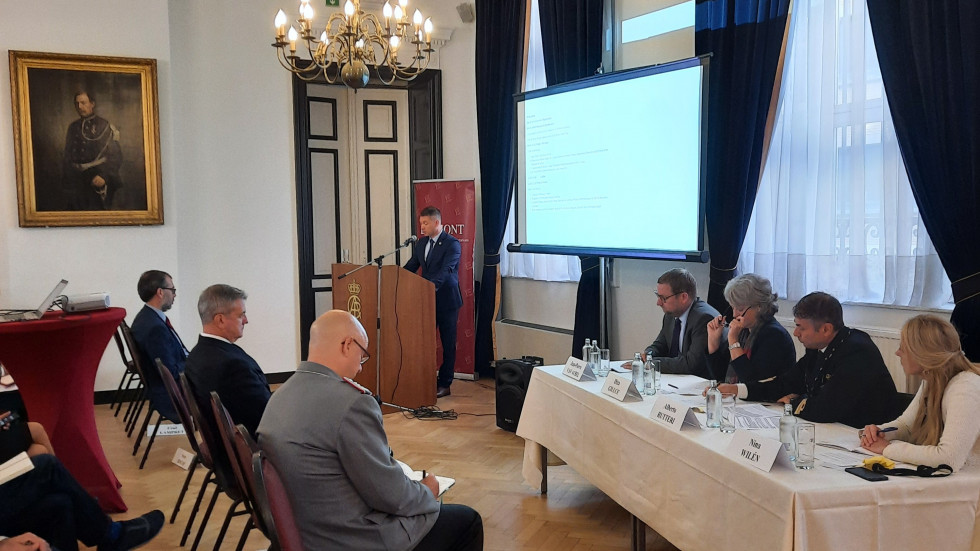At the conference "A Strategic Compass for Military Intervention" also on the European First Entry Force
Strategic Compass will be a document setting out policy guidelines for the development of European defence and security over the next decade in the areas of crisis management, capability development, partnerships and resilience. The aim of this seminar on military interventions was to generate an expert discussion on the strategy of military interventions, the level of ambition and the required forces.
State Secretary at the Ministry of Defence Uroš Lampret began by thanking the representatives of the countries who actively participated in the conference. He emphasized the importance of such discussions at a high professional and political level with the aim of reaching a common agreement on the level of ambition of the EU as a stakeholder in providing its own security and security around the world. He commended on the progress made in developing the Strategic Compass in all four areas, i.e. crisis management, resilience, capability development and partnerships. He pointed out that the Strategic Compass must be a political document which will provide a clear vision for the future and at the same time serve as an action plan with concrete measures and deadlines for achieving the desired results. It should also intend to define the role of EU battlegroups and what is referred to as First Entry Force. According to State Secretary Lampret, the political will of the EU Member States regarding the provision of forces, their flexibility and operational functioning, as well as decision-making and planning procedures, is essential in this respect. The consent of the EU Member States should therefore continue to be the fundamental principle. He referred to the recent developments in Afghanistan as a ground-breaking call for action for both the EU and NATO, which are strengthening their cooperation. In his opinion, the signing of the third joint statement, which would further institutionalize the strategic partnership between the organizations, would be a sensible move to ensure a more coordinated operation of the two organizations and avoid duplication of efforts.
The first panel focused on a review of the military intervention strategy with a focus on the European East and South. The strategy will set out scenarios for the Union's 360-degree approach to security and stability, define the relationship between executive operations and training and assistance missions in the region, where other international actors are already present, and the role of military intervention in an integrated regional approach.
In the second panel, participants talked about the level of military ambitions, namely the EU Battlegroups and First Entry Forces, their size and, above all, the mechanisms for activating these forces. They also discussed the role of the EUFOR Crisis Response Operation Core (CROC) project in the framework of the ongoing Permanent Structural Cooperation in the field of security and defence (PESCO), how the EU and NATO will function, and other issues.


